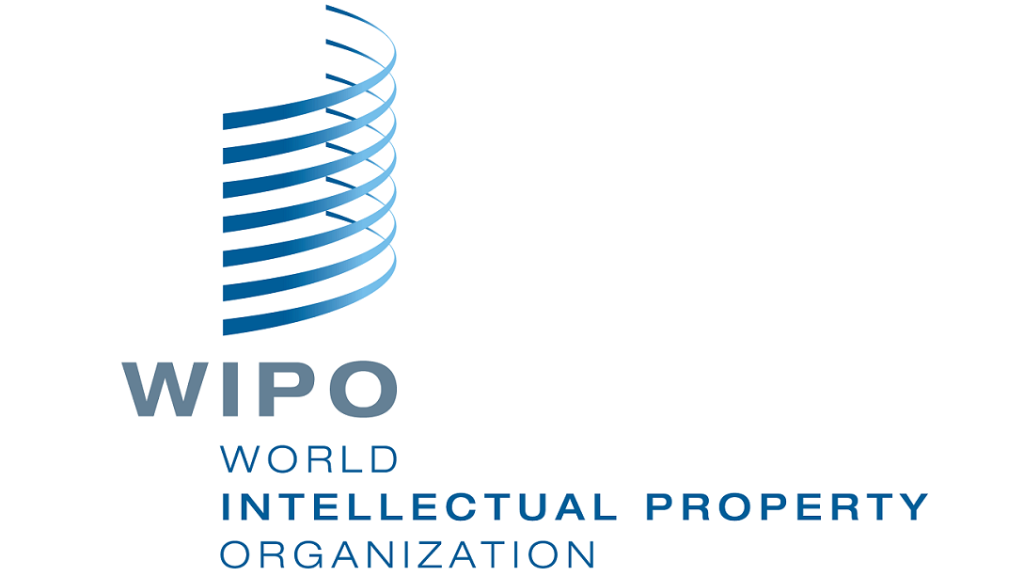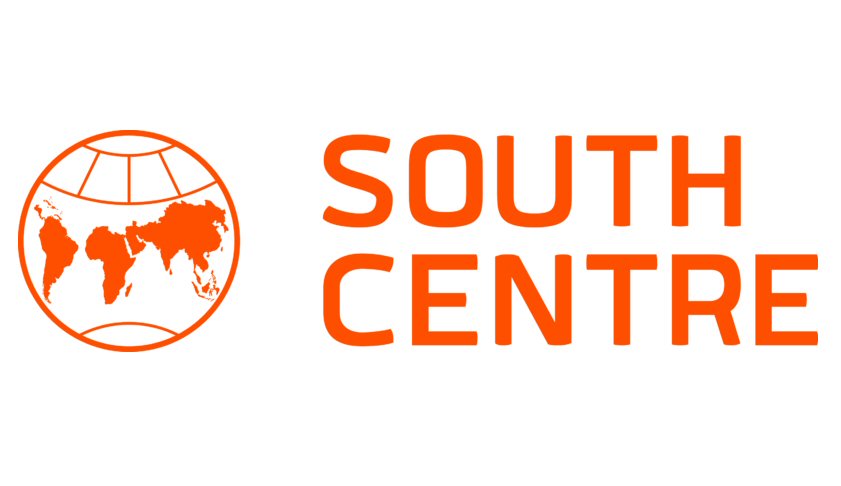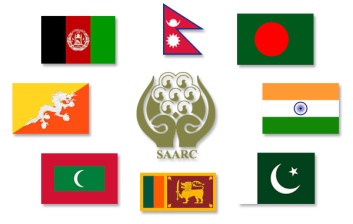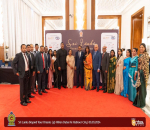Issuance of Certificate of Origin
You can watch the video on “Digital Signature: Tutorial for Electronic Certificate of Origin” by clicking the link below,
click here
Right to Information
- Right to Information Act
- Regulations promulgated under the Right to Information Act
- Information Officer
Ms. A.G.M Kumari -
071 450 1444
Vision
“Raising living standards of the people through international trade relations”
Mission
“To develop and promote Sri Lanka’s foreign trade relations at bilateral, regional and multilateral levels by the effective implementation of government trade policy, with a view to raising the standards of living and realizing a higher quality of life through the increase of total production, income and employment levels, thereby actively contributing to the overall economic growth of Sri Lanka.”
Related Links
 World Trade Organization
World Trade Organization United Nations Conference on Trade and Development
United Nations Conference on Trade and Development SAARC Secretariat
SAARC Secretariat International
International
Monetary Fund International Trade Centre
International Trade Centre Advisory Centre on WTO Law
Advisory Centre on WTO Law World Intellectual Property Organization
World Intellectual Property Organization South Centre
South Centre- EU-Sri Lanka Trade-Related Assistance Project
- Facebook Page for EU-Sri Lanka Trade-Related Assistance Project
Department of Commerce
- Details
- Category: Our Services
South Asian Free Trade Area (SAFTA)
 The Agreement on South Asian Free Trade was finalized and signed by the Council of Ministers of the member states of SAARC on 6th January 2004 in Islamabad, Pakistan. The preliminary substantive work towards finalization of SAFTA was entrusted to the Committee of Experts (COE), which was established drawing expertise from the member states.
The Agreement on South Asian Free Trade was finalized and signed by the Council of Ministers of the member states of SAARC on 6th January 2004 in Islamabad, Pakistan. The preliminary substantive work towards finalization of SAFTA was entrusted to the Committee of Experts (COE), which was established drawing expertise from the member states.
SAFTA aims at further enhancing the programme of regional economic integration through promotion of preferential trade, which began with the establishment of the South Asian Preferential Trading Arrangement (SAPTA) in 1995.
The Fifteenth SAARC Summit (Colombo, 2 - 3 August 2009) emphasized and directed the decision of revising the Sensitive Lists by SAFTA Ministerial Council (SMC) be implemented early. In this regard, it recommended and agreed to constitute an adhoc Working Group to commence work on the reduction in the size of the Sensitive Lists. The First Meeting of the Working Group took place on 10th February 2010 and it discussed the modalities proposed for the reduction in the number of tariff lines in the Sensitive Lists. The Meeting recommended the Member states to prepare their Request Lists bilaterally and keep the Secretariat informed. Following the receipts of the requests, the Members States will make their initial Offer Lists to all SAARC Member States through the SAARC Secretariat. The next meeting of the Working Group will take up further detail negotiations on the Request and Offer Lists with a view to finalizing them.
The Fifth Meeting of the Expert Group on SAARC Agreement on Trade in Services (SATIS) was held on 8 -9 February 2010 at the SAARC Secretariat at Kathmandu in Nepal. The Meeting resumed discussion on the Draft SATIS as revised by the Fourth Meeting of the Expert Group and finalized the Draft SATIS to be signed at a subsequent SAARC Summit by the leaders of the Members States. The Meeting also agreed that the discussion on specific schedules of commitments may commence after the Agreement is signed. The final draft of SATIS was signed at the 16th SAARC Summit held in Bhutan on 29th April 2010 by the leaders of the Member States and Sri Lanka ratified this Agreement on 2nd June 2010.
Asia - Pacific Trade Agreement (APTA)
The Asia - Pacific Trade Agreement (APTA), formerly the Bangkok Agreement signed in 1975, is one of the Asia's oldest regional preferential trading agreements with six Participating States - Bangladesh, China, India, Laos, Republic of Korea and Sri Lanka.
APTA is a dynamic regional agreement which has been instrumental in producing a favourable outcome to Sri Lanka. It is particularly important for Sri Lanka as it is the only trade agreement Sri Lanka partakes with China and the Republic of Korea.
The exports under the APTA have increased with the implementation of the third round of tariff liberalization in September 2006. Sri Lanka's total exports under APTA in 2009 have increased to US$ 49.48 Mn compared to US$ 35.3 Mn in 2008, recording a 40% growth. Remarkably, exports to China under APTA accounts for US$ 28.98 Mn in 2009, which marks an increase of 53%. Coir products, tea, natural rubber, apparel, fish products, activated carbon, wooden furniture, silver jewellery and porcelain ware are Sri Lanka’s main exports under APTA.
Further concessions are envisaged at the conclusion of the 4th Round of trade negotiations, which were launched at the Second Session of the Ministerial Council of the Asia Pacific Trade Agreement (APTA), held on 26th October 2007 in Goa, India. Ministers launched this new Round with a view to further widening products coverage and deepening the tariff cuts and to adopt modalities for the extension of negotiations into other areas such as non-tariff measures, trade facilitation, services and investment. The Third Ministerial Council was held on 15th December, 2009 in Seoul, Republic of Korea. In addition, two framework agreements on Trade Facilitation and Promotion, Protection and Liberalization of Investment was signed.
- Details
- Category: Our Services
Indo - Sri Lanka Free Trade Agreement (ISFTA)
The Indo - Sri Lanka Free Trade Agreement (ISFTA), which was signed on 28th December 1998 and entered into force with effect from 1 March 2000, aims at promoting economic linkages between India and Sri Lanka through enhancement of bilateral trade and investment. The Agreement covers only trade in goods and requires the two countries to offer market access for each other's exports on duty free basis and concessionary tariffs. The ISFTA does not provide for elimination of non-tariff barriers.
Sri Lanka's exports to India increased from US$ 164.51 Mn during the first seven months of 2009 to US$ 239.2 Mn during the corresponding period of 2010 registering a 45.4% growth. This increase was mainly due to a significant increase in exports such as spices (cloves, nutmeg, mace, pepper etc.), electrical machinery and parts, copper products, sheet rubber, pulp, confectionery & bakery products, tyres & tubes, glass products, wooden products, garments, apparel & clothing accessories, furniture, processed fruits & fruit juices, jewellery items etc. in the first seven months of 2010, when compared to the corresponding period of 2009. However, exports of certain products such as tea, ceramic products, cinnamon, gems, boilers & machinery parts, processed food, mineral sand, activated carbon etc. have recorded a decrease during January to July in 2010 compared to 2009.
Products Diversification under the ISFTA
While there has been a reduction in major exports such as vegetable oil, primary copper, margarine, marbles and pepper, a variety of other products have gained market access to India. They include insulated wires and cables, poultry feeds, pneumatic tyres, ceramics, apparel, furniture, air conditioners & coolers, measuring and checking instruments, glass bottles, processed meat products, Medium density Fiber (MDF) Boards, rubber gloves, thermal papers, tiles, stones and marbles, boilers & machinery parts, iron & steel articles, panel boards & enclosures, sacks and bags etc.
Pakistan - Sri Lanka Free Trade Agreement (PSFTA)
The Pakistan - Sri Lanka Free Trade Agreement (PSFTA), which came into force on 12th June 2005, has seen a substantial improvement in trade between the two countries, with the value of total trade between the two countries, which stood at US$ 147.1 Mn in 2004, increasing to US$ 370.38 Mn in 2015. Sri Lanka's exports which was at US$ 39.2 Mn in 2004 has increased to US$ 73.10 Mn in 2015, making Pakistan Sri Lanka's second largest trading partner in the SAARC region after India.
Sri Lanka's main exports to Pakistan include Pepper, Beedi leaves, Betel leaves, Coconut shell pieces, Natural rubber, Coconuts & cashew nuts in fresh or dried, Wood & articles of wood, Edible vegetables, Tea. A range of new products have also penetrated into the Pakistan market after the implementation of the PSFTA, including fresh pineapple, sports goods, tamarind with seeds, edible oil, porcelain tableware & kitchenware, ceramic tiles, furniture, electrical switches and sockets, herbal cosmetic products and plastic articles, paints, glass paintings, leather products, frozen fish, prawns, lobsters, crabs, cut flowers and foliage, gems & Jewellery and aquarium fish.
Both Countries have completed its phasing out commitment and now have the duty free market access for more than 4500 products in both countries.
- Details
- Category: Our Services
Safeguarding and promoting Sri Lanka's economic, trade & commercial interests at multilateral fora
Safeguarding and promoting Sri Lanka's economic, trade & commercial interests at multilateral fora through effective representation and participation at discussions and negotiations at all levels (i.e. decision making and technical) at the World Trade Organization (WTO) and liaising & cooperating with likeminded WTO member countries to form common positions on issues of significant interest to Sri Lanka.
Conducting negotiations to secure market access by gaining tariff concessions under non-reciprocal preferential trade agreements
Conducting negotiations to secure market access by gaining tariff concessions under non-reciprocal preferential trade agreements i.e. Generalized Systems of Preferences (GSPs) for Sri Lanka’s exports.
Conducting negotiations to secure preferential market access for Sri Lanka’s exports under reciprocal trade agreements
Conducting negotiations to secure preferential market access for Sri Lanka’s exports under reciprocal trade agreements, such as, Free Trade Agreements (FTAs) and Regional Trading Arrangements (RTAs).
Monitor market access related developments, both tariff and non-tariff measures in main foreign export markets
Monitor market access related developments, both tariff and non-tariff measures in main foreign export markets and take coordinated actions by making effective & adequate representations at bilateral & multilateral levels for mitigating or eliminating the negative impact of such measures on Sri Lanka’s exports.
Initiate coordinated actions to address specific market entry barriers in the import markets
Initiate coordinated actions to address specific market entry barriers in the import markets by formulating requisite standards/procedures at national level and obtaining approval/endorsement from the Regional /International Standard setting bodies.
Conducting awareness seminars/workshops on market access opportunities
Conducting awareness seminars/workshops on market access opportunities available under FTAs, RTAs and GSPs, in Colombo and regional cities.
Dissemination of information on market access related developments, both tariff and non-tariff measures in nature in the overseas markets
Dissemination of information on market access related developments, both tariff and non-tariff measures in nature in the overseas markets and analyzing the impact of such measures on Sri Lanka’s exports, including advocacy for addressing supply side constraints.
Advising and guiding exporters on becoming eligible for COOs under FTA
Advising and guiding exporters on becoming eligible for COOs under FTA, including consultations on rules of origin, production, procedural requirements, etc.
Expeditious issuance of Certificates of Origin to facilitate exports
Expeditious issuance of Certificates of Origin to facilitate exports under the following preferential schemes and regional, bilateral and free trade agreements
- Generalized System of Preference (GSP)
- Global system of Trade Preference (GSTP)
- SAARC Preferential Trading Agreement (SAPTA)
- South-Asian Free Trade Area (SAFTA)
- Indo-Sri Lanka Free Trade Agreement (ISFTA)
- Pakistan-Sri Lanka Free Trade Agreement (PSFTA)
- Asia-Pacific Trade Agreement (APTA)
Organizing training programs/ workshops with foreign resource personnel in Colombo and in regional cities
Organizing training programs/ workshops with foreign resource personnel in Colombo and in regional cities on the topics related to new developments in international trade and WTO agreements.
Hosting of “Sri Lanka Trade Information Portal”
Hosting of “Sri Lanka Trade Information Portal” with up to date information related to export and import procedures of 41 organizations, which disseminates all the requirements they need to comply with to import or export a specific good from and into Sri Lanka, in response to a single query.
Assistance to resolve trade disputes between a foreign party and a Sri Lankan party through amicable means
Guiding and assisting the exporters to compile their responses of defense when their products are subject to anti-dumping investigations initiated by the importing countries
Analyzing & compiling responses of defense when Sri Lanka’s exports are subject to countervailing duty & safeguard investigations initiated by the importing countries
Overseas Commercial Representation
The Commercial Representation comprises of 31 DoC officers serving in 28 Sri Lanka Missions aboard, who are engaged in promoting and safeguarding Sri Lanka’s commercial and economic interests in the host countries.
Main duties performed by the commercial officers abroad are as follows:
- Compilation of market surveys/ intelligence for identification of export opportunities for Sri Lankan products.
- Monitoring & reporting of host-country trade policy changes, especially tariff and non-tariff measures, including recommendations for remedial action, while keeping in view of bilateral, regional & international legal obligations of the host-country.
- Making adequate representation to the host-country for mitigating negative impact of tariff & non-tariff measures imposed on Sri Lanka’s exports.
- Organizing Sri Lanka’s participation in international trade exhibitions/events and one to one meetings.
- Arranging inward business delegations to attend B2B meetings, visit exhibitions/events held in Sri Lanka.
- Staging Sri Lanka-specific (single-country) promotional campaigns in host countries.
- Organizing trade, investment and tourism delegations to visit Sri Lanka and vise-versa to explore business & Investment (Joint Venture) opportunities.
- Organizing individual business visits from and to Sri Lanka to explore business & Investment (Joint Venture) opportunities.
- Networking with trade, investment and tourism related government officials in the host countries and representing Sri Lanka at different governmental and international organizations on issues/ matters relating to Sri Lanka’s commercial and economic interests.
- Serving trade, investment and tourism related inquiries, visiting/meeting with foreign businesses, providing technical assistance to Sri Lankan exporters, assistance to resolve trade disputes etc.
- Assist exporters/ manufacturers to register their products/ brand names in overseas markets.
- Intervention with Customs/ Food Safety Authorities of the importing country to facilitate clearance of export consignments from Sri Lanka.
- Secure opportunities aboard for the Sri Lankan manufactures/ growers to attend capacity building/ training programs to acquire/ enhance knowledge on product development, technology, packaging, marketing etc.
- Preparation of briefs/inputs on policy matters affecting trade at bilateral, regional & multilateral levels for enhancing market access for Sri Lanka’s exports of goods & services.
- Providing tailor-made and specific guidance and advice to individual exporters for addressing their supply side constraints and for compiling the responses of defense when their products are subject to anti-dumping investigations initiated by the importing countries.
- Implementation of promotional programmes under “Economic Diplomacy” initiative of the Ministry of External Relations.
- Implementation of export, investment and tourism promotional programmes initiated by the relevant government institutions, Trade Chambers & Business Councils in coordination with relevant stake holders
- Handling, channeling of Official Development Assistance(ODAs) related work and Projects in coordination with the Department of External Resources and other Governmental Organizations (In a few missions-China/,Beijing)
- Assisting GOSL in procurement of its essential goods and services.
Recommendation for Residence Visas
Only forcompetent expatriates, consultants, specialists and their dependents employed at liaison offices, branch offices or foreign companies, other trade and commercial ventures, taking into account the direct benefits of such employments accruedfor export trade, technology transfer and productivity improvement to the National Economy etc.,.
Declaration of Credit Agencies
Director General of Commerce is empowered to declare a company, firm, institution or individual as an approved credit agency under the Mortgage Act No. 6 of 1949. Hence, the Director General will do so-on the basis of a recommendation by a Board consisting of a Chairman and two other persons appointed by the Hon. Minister under Section 114 (1) of the Mortgage Act No. 6 of 1949.
Department of Commerce
No.492
2nd Floor
L. H. P. Building
R.A.de Mel Mawatha
Colombo 03
General No- 2329733/2346114/
2327191/2325524
General COO inquiries- 0778489678
fortrade@doc.gov.lk
011 2430233








